Post
A catch
Save a catch to start your fishing logbook. You will be able to to share it with the community if yo want!
A fishing trip
Post an ad to go fishing with other fishermen
Save a catch to start your fishing logbook. You will be able to to share it with the community if yo want!
Post an ad to go fishing with other fishermen
Share a thought, a question with the community
My favorite cities
×Join our 4 fishermen in Plymouth in Marshall. The fishing forecast is currently 2.8. The most caught fishes here are the westlope cutthroat trout, the coho salmon, the razorback sucker and the spotted seatrout. Come try the most famous fishing techniques like the dive fishing, barracuda trolling, trolling for bonito or surfcasting.
Our fishing forecast of Plymouth indicates the best time to go fishing in this city.
The Westlope cutthroat trout
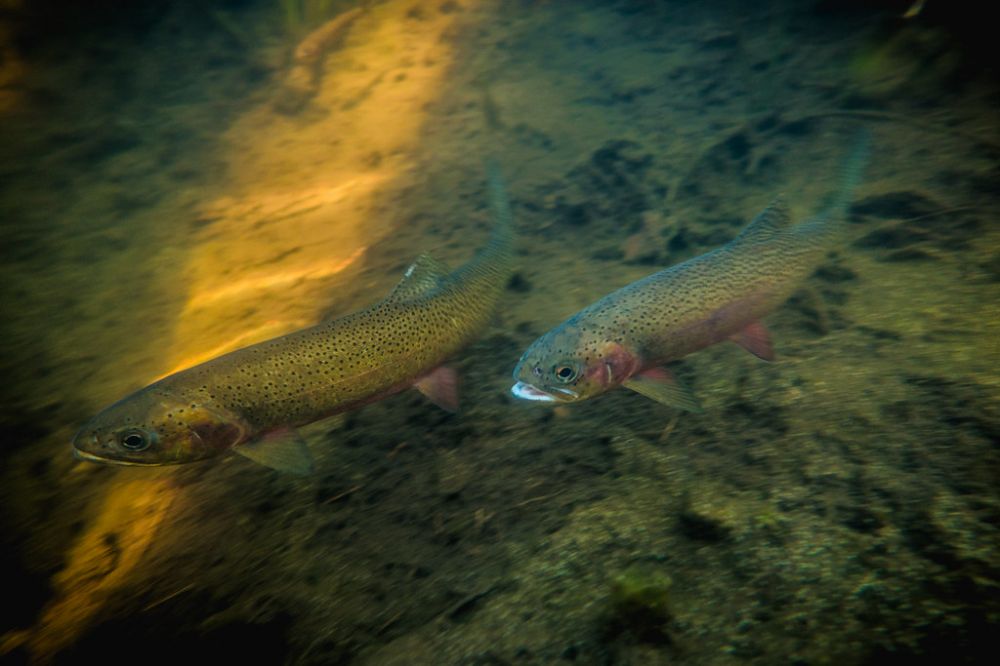
The Westlope cutthroat trout belongs to the Salmonidae Family. The average length of the fish is about 30 cm and rarely exceeds 46 cm. It has an average life span of 2 to 5 years. They breed in the spring. Fishing is prohibited because this fish is endangered. The fish has teeth under the tongue, on the roof of the mouth and on the front of the mouth. The gorge cutting the western slope is common in the waters of lakes and rivers upstream. The skin has small dark freckle-like spots, grouped towards the tail, and is mainly orange in color. They are distinguished from rainbow trout by the red, pink or orange markings under the jaw.
The Westlope cutthroat trout is a famous fish you can catch in Plymouth.The Coho Salmon
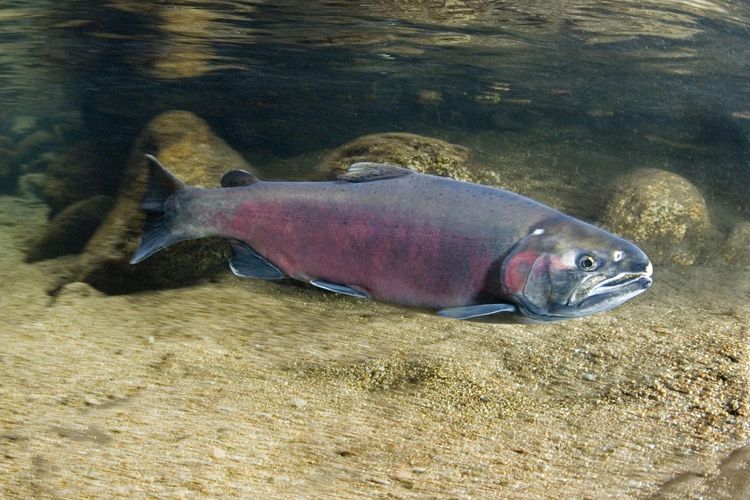
The Coho Salmon belongs to the Salmonidae family. it measures about 71 cm by 5 kg in general. They have a life expectancy of 5 years. They spawn from September to January. They can be captured from July to October. During their ocean phase, coho salmon have silvery sides and a dark blue back. After entering fresh water, they develop bright red flanks, blue-green heads and backs, a dark belly and dark spots on the back. Sexually mature fish develop a pale pink or pink shade along the belly, and males may have a slight arch on the back. Mature adults have a pronounced red skin color with a darker back.
The Coho Salmon is a famous fish you can catch in Plymouth.The Razorback Sucker
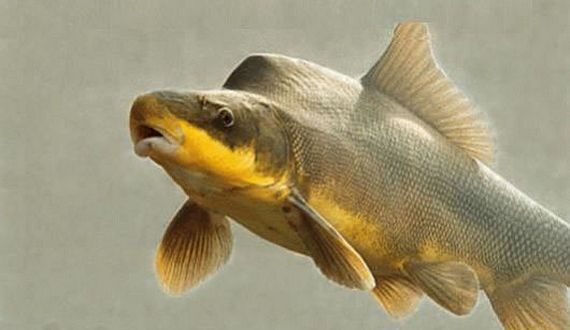
The Razorback Sucker belongs to the Catostomidae family. It is a relatively large catostomidae, reaching more than 91 cm in length and weighing 5 to 6 kg. It has a lifespan of 50 years. It nests from January to June. It cannot be fished because of its status as an endangered species. Razorback suckers are similar to other Catostomidae, with the exception of two main characteristics. The most characteristic features of the razorback sucker are a pronounced edge made of neural and internal bone that extends from the head to the dorsal fins, as well as elongated filaments on the gills. Females have a lower keel. Well-developed filaments are made for zooplankton feeding. It has a long snout, a long rounded head that is ventrally compressed and a ventral mouth with a split lower lip. There is 12 to 15 rays on the dorsal fin and the anal fin has 7 rays. Pelvic and anal fins are longer in males. It has an almost straight lateral line with 68 to 87 scales.
The Razorback Sucker is a famous fish you can catch in Plymouth.The Spotted Seatrout
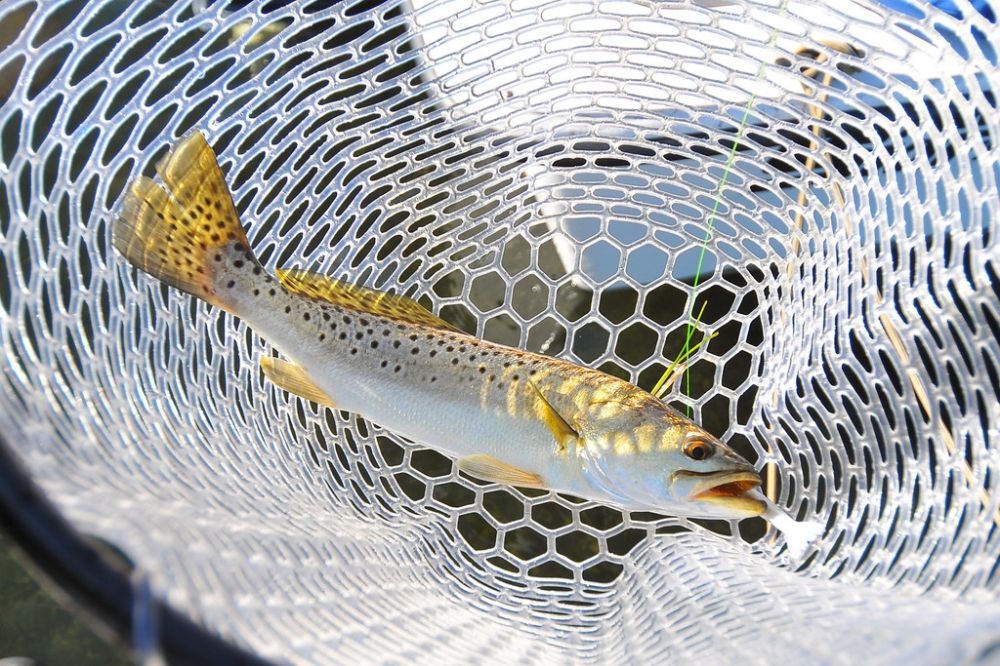
The Spotted Seatrout belongs to the Scianidae family. Spotted sea trout reach a maximum length of 100 cm and a maximum weight of 7.9 kg. The lifespan of this species is 8 to 10 years. It breeds from March to September. It can be fished all year round. The spotted seatrout has an elongated, somewhat compressed body with a slightly elevated back. The head is long with a pointed snout and a large oblique mouth. The dorsal fin is continuous or slightly separated. The fins are flake-free, with the exception of 1 to 10 rows of small scales at the base of the dorsal and anal fins. The lateral line extends over the tail, characteristic of all Sciaenidae. The body of the spotted seatrout is silvery with irregular black spots on the upper half, from the dorsal fin to the caudal fin. The dorsal side is dark grey with bluish reflections while the ventral side is silvery to white. The dorsal fin is dark, while the others are yellowish.
The Spotted Seatrout is a famous fish you can catch in Plymouth.The Muskellunge
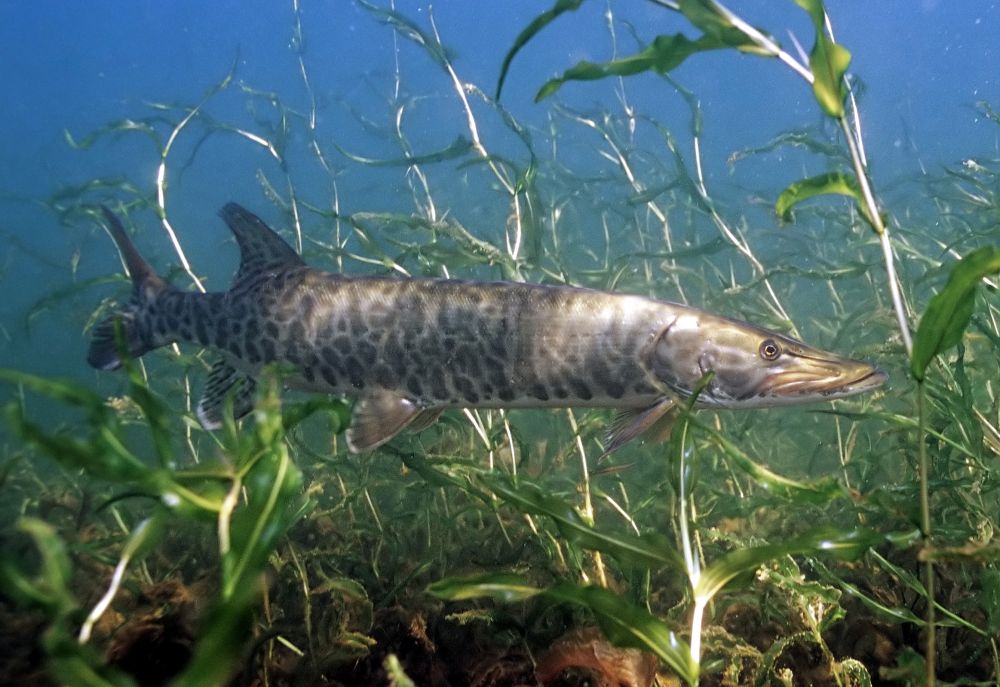
The Muskellunge belongs to Esocidae family. It can reach 150 cm of length for 30 kg. It has a lifespan of 30 years. They spawn in springs. It can be fished all year round. The sides vary from greenish to brownish to silvery, usually with dark marks, but marks may be absent. The white or cream belly often has brownish or greyish spots. The dorsal and anal fins, located far away on the body, range from greenish to brownish to blood-red and generally have dark marks. The duckbill jaws have long, pointed teeth: the roof of the mouth has shorter, curved tooth pads. The cheek cover and gills have scales on the upper half only. The underside of the jaw has sensory pores, the numbers varying from 12 to 20, but the number is generally 15 to 18.
The Muskellunge is a famous fish you can catch in Plymouth.Our fishing forecast of Plymouth indicates the best time to go fishing in this city.
Our fishing forecast of Plymouth indicates the best time to go fishing in this city.
Our fishing forecast of Plymouth indicates the best time to go fishing in this city.
